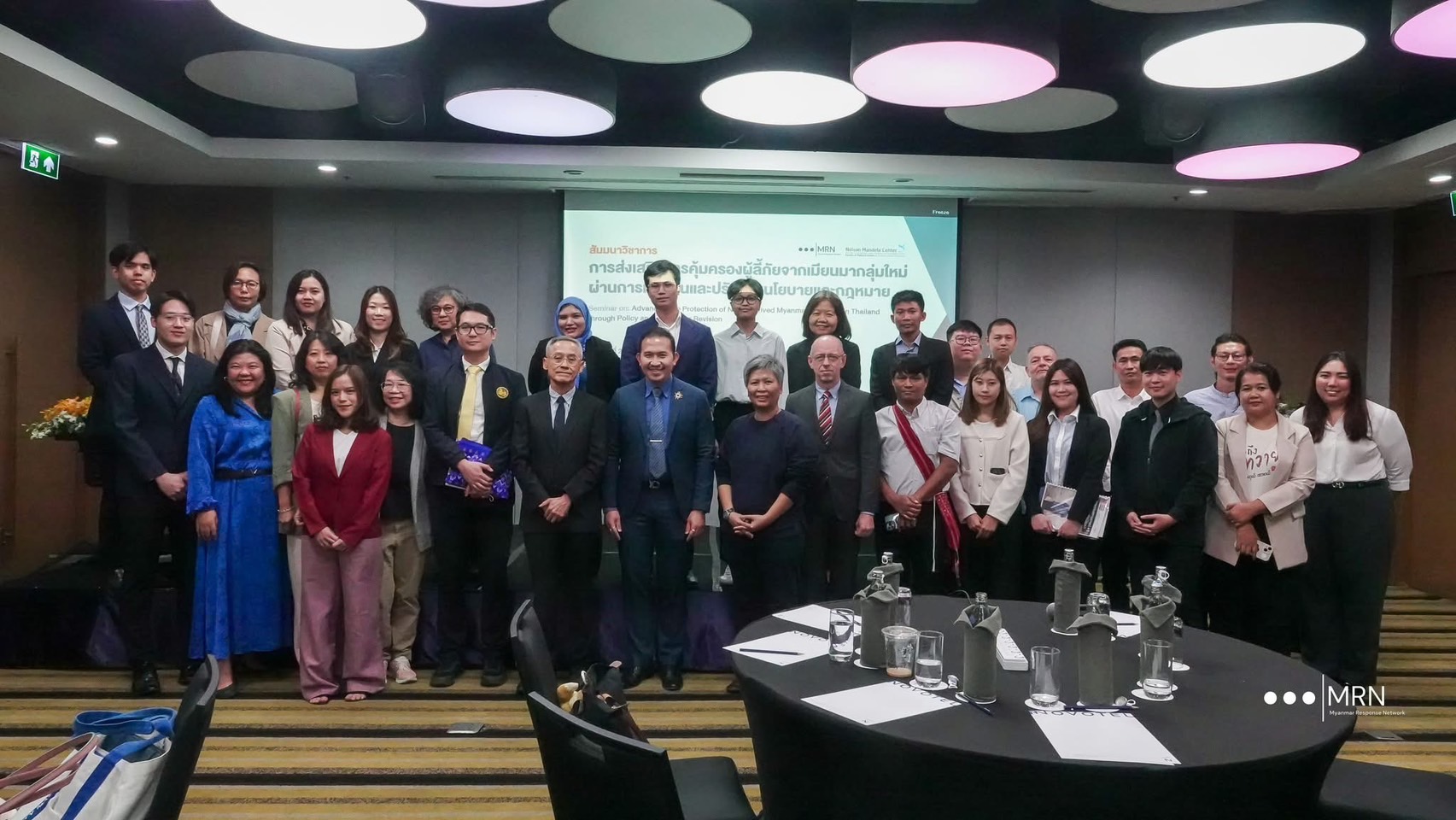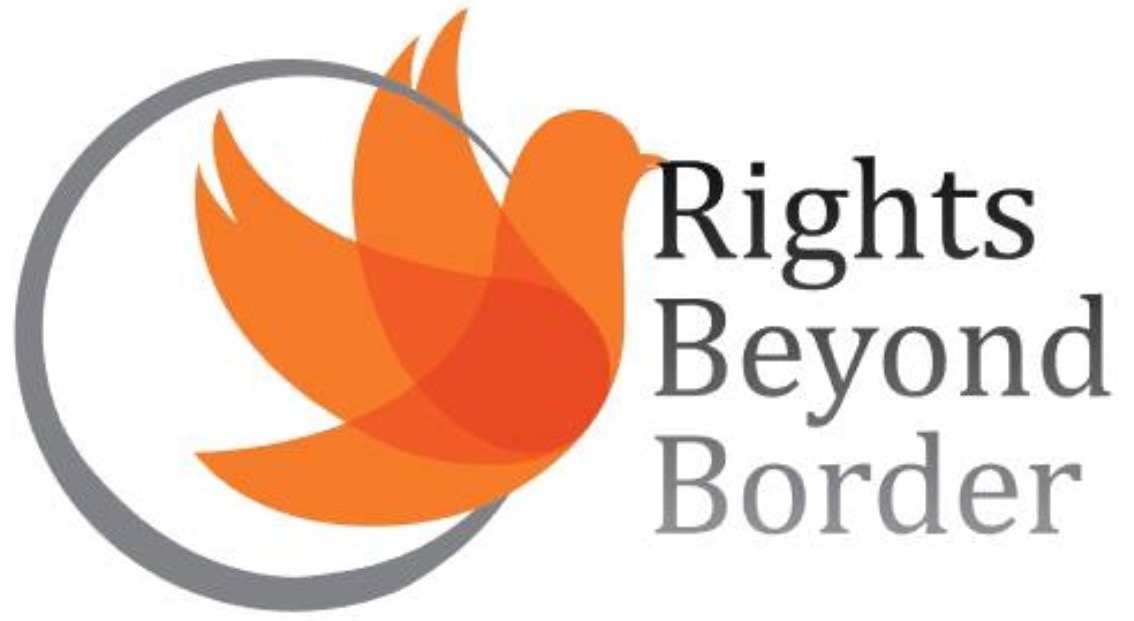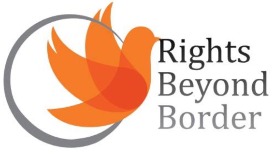
MRN Network Meeting For New Myanmar refugees in Thailand
On 27 January 2025, the Myanmar Response Network (MRN) organized an academic seminar to promote the protection of new Myanmar refugees in Thailand through policy and law review and improvement. Experts, academics, policymakers, and civil society organizations discussed ways to amend policies and laws related to new Myanmar refugees and promote human rights protection through reforming the existing legal system to make refugee protection more effective.
The 2021 coup in Myanmar sparked escalating violence that has forced more than 54,000 people to flee across the border into Thailand. To cope with this crisis, six organization: Asylum Access Thailand (AAT), Burma Concerns (BC), Human Rights and Development Foundation (HRDF), Jesuit Refugee Services (JRS), Rights Beyond Border (RBB), and Spirit in Education Movement (SEM) have come together to form the MRN, which aims to provide legal assistance, policy advocacy, and social protection to refugees.
This situation is not only a reflection of the political and humanitarian crisis in Myanmar. But it is also a major test for Thailand in dealing with the increasingly complex and challenging refugee problem. Violence in Myanmar has erupted in waves, starting with the killing of activists, followed by the devastating cyclone that hit Rakhine State in 2013, and most recently the introduction of a military draft law in 2014 that has forced people to join the armed forces. Moreover, near-daily airstrikes, totaling more than 3,400 incidents, have driven many people to flee their homes to seek safety in Thailand.
According to RBB’s survey of refugee living conditions in Thailand, they face a number of challenges. 80% have to rent their own accommodation, and only 7% can pay their own rent. Shockingly, 77% are undocumented and cannot work legally. Only 7% are able to work, mostly in the construction sector. This situation has left refugees vulnerable and at risk of exploitation.
Thailand’s past efforts to care for refugees since the coup have both progress and limitations. In terms of progress, five temporary safe areas have been established along the border. To support refugees fleeing from the fighting, there are also efforts to develop a National Screening Mechanism (NSM) to identify and provide protection to those in need. However, there are still many limitations, especially since Thailand has not yet become a party to the 1951 Convention relating to the Status of Refugees and the 1967 Protocol relating to the Status of Refugees, resulting in a lack of a clear legal framework for refugee protection.
In terms of improving the quality of life, it is necessary to take action in many areas simultaneously, such as allowing refugees to work legally, accessing education at all levels, from primary to higher education, accessing basic health services, and promoting coexistence between refugees and local communities. These actions will not only improve the quality of life of refugees, but also reduce the burden on the government sector and promote economic development in the area.
Human rights experts have emphasized the importance of looking at the problem from all sides, especially preventing the exploitation of refugees, whether in an open or covert manner. Any action should adhere to the principles of transparency and the participation of all sectors, especially working with international organizations such as UNHCR, which have experience and expertise in caring for refugees.
Future approaches should focus on creating sustainable partnerships between civil society organizations and government agencies, and developing guidelines based on academic evidence. and promoting tangible policy changes, with the expectation that it will lead to the development of an effective and sustainable refugee protection system that is in line with international standards and the context of Thai society.
Ultimately, resolving the refugee problem is not just a response to a humanitarian crisis, but also an expression of Thailand’s responsibility as a member of the international community, and an opportunity to develop the country’s human rights protection system to be more advanced and stronger to cope with humanitarian challenges that may arise in the future.
MRN sincerely hopes that this academic seminar will be the starting point for creating sustainable cooperation among all sectors, including the government sector, civil society, and international organizations, to develop policies and laws that can effectively protect refugees and are in line with international standards, as well as enhance understanding and cooperation in dealing with future humanitarian crises. MRN believes that with cooperation from all parties, we will be able to create a stable and sustainable refugee protection system, which will lead to improving the quality of life of refugees and the development of Thai society in the long term.
Asylum Access Thailand(AAT)
Burma Concern (BC)
Jesuit Refugee Service – JRS Thailand
JRS Asia Pacific Region
Rights Beyond Border (RBB)
Spirit in Education Movement (SEM)

